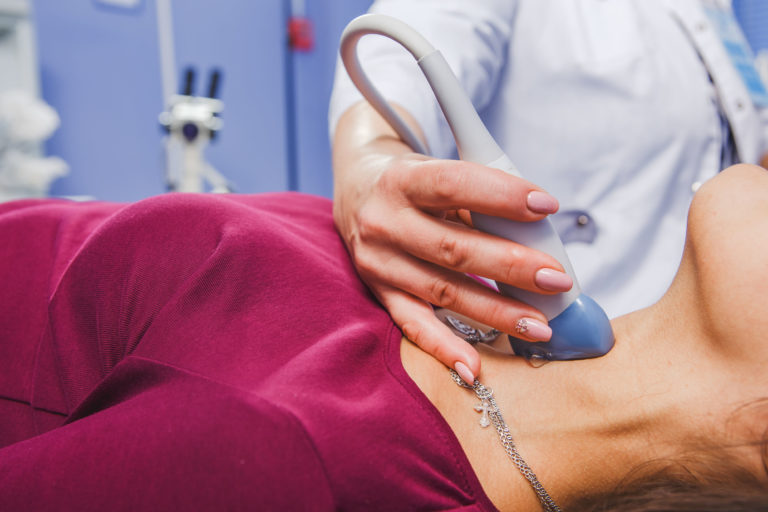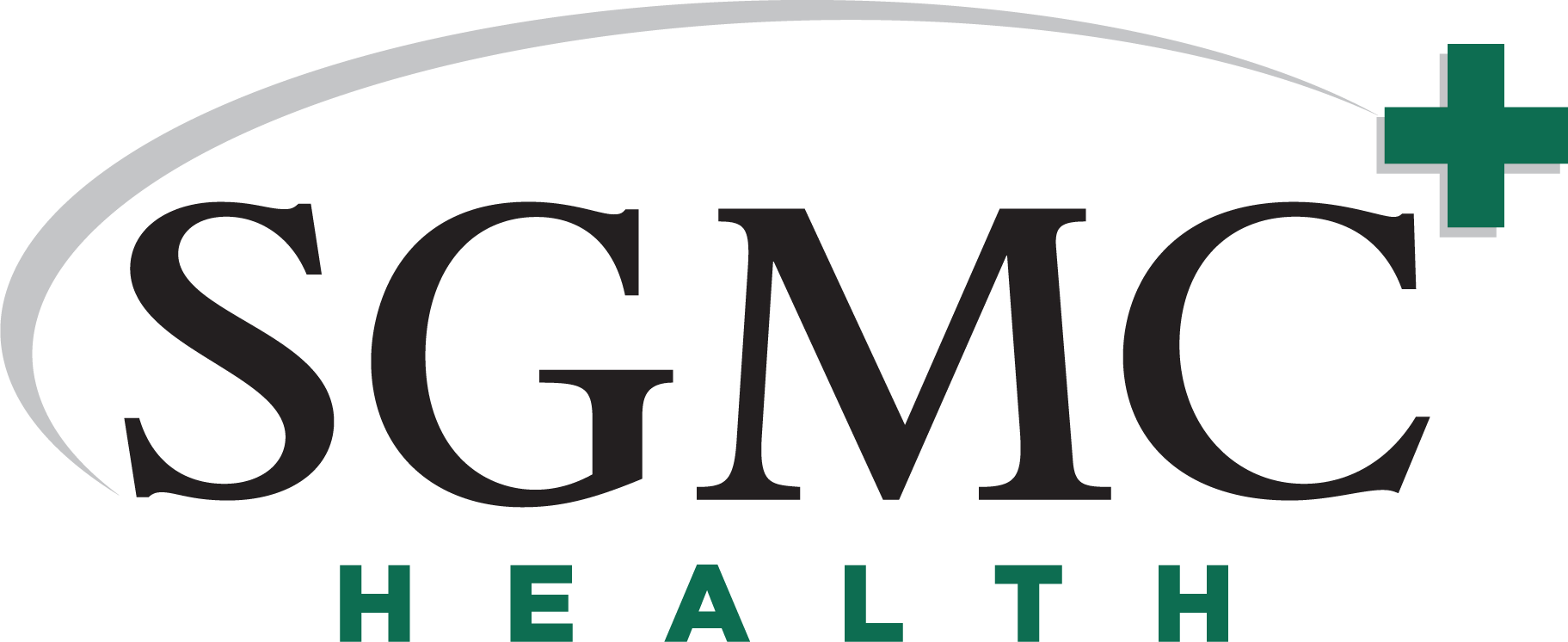
Before, during, and after surgery
Thyroid surgery is performed for several reasons and can include symptomatic thyroid nodules, recurrent thyroid cysts, goiter, Graves’ disease, and to rule out or treat thyroid cancer. The purpose of thyroid surgery is to remove part or all of the thyroid gland. You will be in the hospital usually one night. Your surgeon will explain your specific surgery and why it is recommended in your case.
As with any surgical procedure, there are risks involved. There is a risk of bleeding, but this is very low. The average blood loss is less than an ounce. The risk of infection is so low that antibiotics are not routinely used. There is also a very low risk of injury to important nerves, called recurrent laryngeal nerves, in the neck. These nerves control the vocal cords. Injury to these nerves could affect your voice. The parathyroid glands are located near the thyroid gland and may be injured during thyroid surgery. This can result in a drop in blood calcium levels. There is also a small risk associated with anesthesia. However, the relative risk of complications is very low and is usually outweighed by the potential benefits of having the surgery. Your surgeon will go over this information with you and answer any questions you might have.
Before Surgery
Once the surgery has been scheduled, arrangements will be made for your pre-operative evaluation. You will meet with a representative from the anesthesiology department. The pre-op exam can include laboratory work, chest x-ray, and EKG. This will be done at our SGMC Health and will be scheduled by your surgeon’s staff. The night before surgery, do not have anything to eat or drink after midnight. Get a good night’s sleep.
The Day of Surgery
Your doctor’s staff will let you know where your surgery will be and what time you need to arrive at the hospital on the day of surgery. It is very important to arrive at least 2 hours before surgery. During the surgery, your family can wait in the family waiting area. They will be kept updated by the patient representative and operating room staff. The surgeon will speak with them after surgery has been completed.
What will happen during surgery?
You will be given general anesthesia to put you to sleep. You are positioned with special pillows under your neck to tilt your head back. An incision is made at the base of your neck and is about three inches long. Using magnifying lenses, the surgeon locates the thyroid gland and associated structures and all or part of the thyroid is removed. In some cases, additional surgery will involve removal of lymph nodes and other structures. The incision is stitched closed and is then covered with steri-strip tape and a waterproof adhesive dressing. The operation generally lasts from two to three hours. You will be monitored closely as you recover from the anesthesia.
After Surgery
The evening after surgery you will have a liquid diet for dinner. You may have a sore throat. The nurse will provide lozenges and/or throat spray to help relieve this. If you need something for pain, the nurse will give you pain medicine. You will have a dressing on your neck, which is waterproof and ok for shower starting the day after surgery. The head of your bed will be raised to decrease swelling. You will have routine blood tests. You will be offered regular food the next morning. Most people are ready to go home after breakfast.
The Incision
After the dressing is removed, you will notice that the incision is covered with tape (steri-strips). Leave the steri-strips in place. You may shower the day after surgery. Infection is extremely rare. If you notice any redness or drainage from the incision, contact your surgeon. After the dressing is removed, the most important thing you can do to improve the appearance of your scar is to protect it with sunscreen that has a sun protection factor (SPF) of 30 for an entire year. During the year, your scar may become raised or red, but will almost always fade into a thin line which will be less noticeable.
How will I feel after surgery?
Everyone is different. You will most likely be tired and a bit sore for a few days. You may have pain not only from your incision, but also from muscle soreness in your upper back and shoulders. This is from the positioning in the operating room during the surgery. You will also have pain medicine in the hospital and a prescription for pain pills at home.
You may have a sore throat. This is a result of the placement of anesthesia tubes during surgery. Throat lozenges and spray usually help. Your neck may be slightly swollen as well. You may feel like you have a lump in your throat when you swallow. This will improve after a few days but may continue for a week or so. If you notice sudden swelling in your neck, contact your surgeon’s office. Your calcium level may drop after surgery. This is related to disturbance of the parathyroid gland, which regulates calcium balance. This will be monitored through blood tests. You may notice numbness and tingling of your fingers or around your mouth. You will have instructions about taking calcium replacement if needed.
Recovering at Home
Most people take 1 to 2 weeks off to recover. You should not drive until the stitches have been removed. There are no other restrictions. Depending on the amount of thyroid tissue that was removed and the reason for your surgery, you may be placed on thyroid hormone (Levothyroxine or Synthroid). Your doctor will discuss your situation with you.
